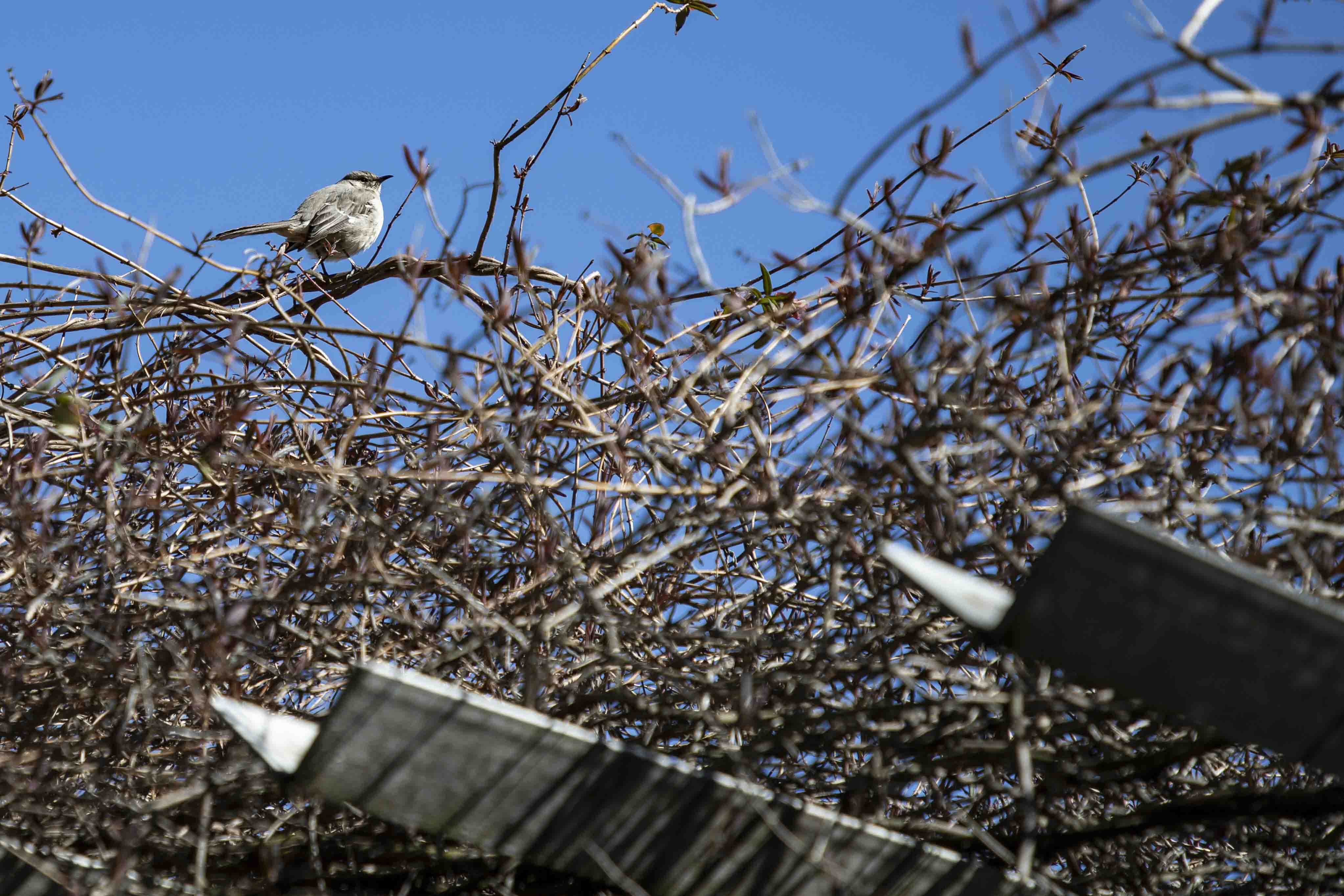
This year, the Arkansas Audubon Society certified Eco Modern Flats a Bird Friendly Yard. AAS is an organization that works to foster knowledge of the natural history of Arkansas and conserve its natural resources. Eco is the first multifamily property to earn the certification.
According to Arkansas Audubon, “Over the past century, urbanization has changed once ecologically productive land into sterile lawns with exotic ornamental plants. We have introduced walls of glass, toxic pesticides, and domestic predators. The human-dominated landscape typically does not support functioning ecosystems or provide healthy places for birds. As a result many bird species are in decline.
Pam Stewart, who serves on the AAS Bird Friendly Yard Committee, explains: “The Bird Friendly Yard program encourages the growing of native plants because native plants provide most of what birds require. Besides providing berries, seed, and shelter, native plants host native insects, the main food of nestlings. Insects are ‘baby food’ for birds, even if as adults they feed on berries and seeds. However, insects are fussy eaters. The majority are adapted to digest only a few specific plants or groups of plants, and those are plants with which they share an ancient history, plants native to the local area.”
“Without native plants,” she says, “bird babies won’t get enough food to survive.”
Arkansas native plants are up against a difficult competitor – invasive plants, many of which start out as ornamental plants sold by garden centers.
“Invasive non-native plants provide little for wildlife and have few predators,” Stewart says. “When they spread into natural areas, taking up space and crowding out native plants, they starve wildlife.”
To encourage the creation of more bird-friendly habitats, AAS created a set of standards and a rating system that encourages homeowners to plant native plants, remove invasive plants, remove hazards to birds, and provide suitable shelter, food, and water. In addition to providing more than an acre and a half of native plantings in downtown Fayetteville, Eco Modern Flats provides educational materials for residents on bird-friendly habits, including the hazards of allowing pet cats to roam outdoors. Eco Modern Flats received the highest level of recognition from AAS as a Gold Level Bird Friendly Yard.
Plant Natives & Remove Invasives
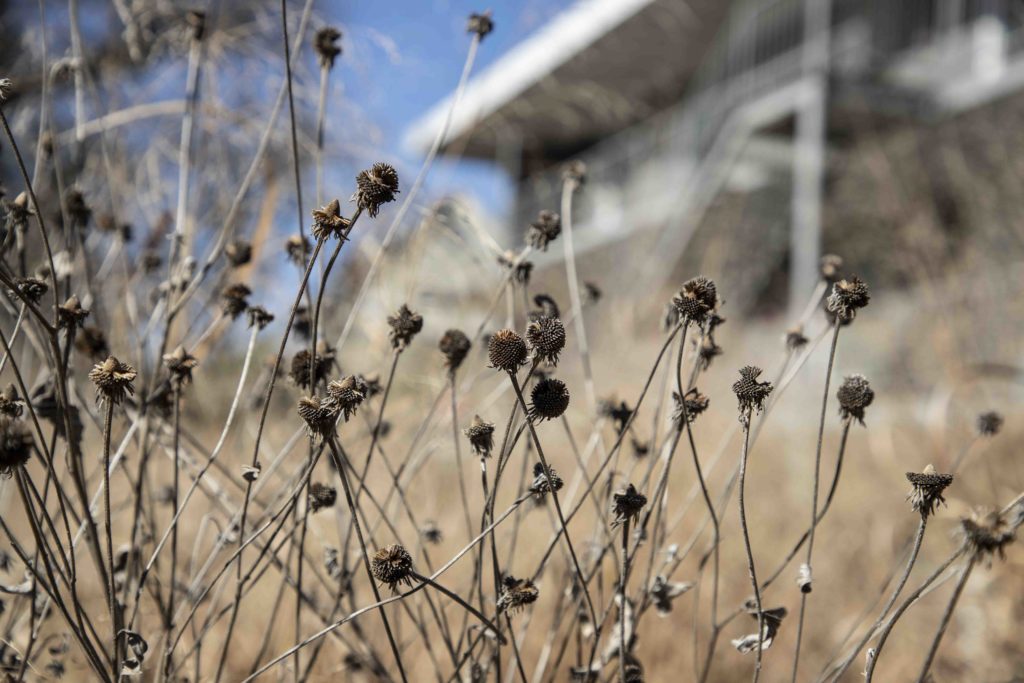
Remove invasive species. Invasive bush honeysuckle, Tree of Heaven, and privet were removed and replaced with native plants like this coneflower, which provides blooms in the summer and seeds for birds in winter.
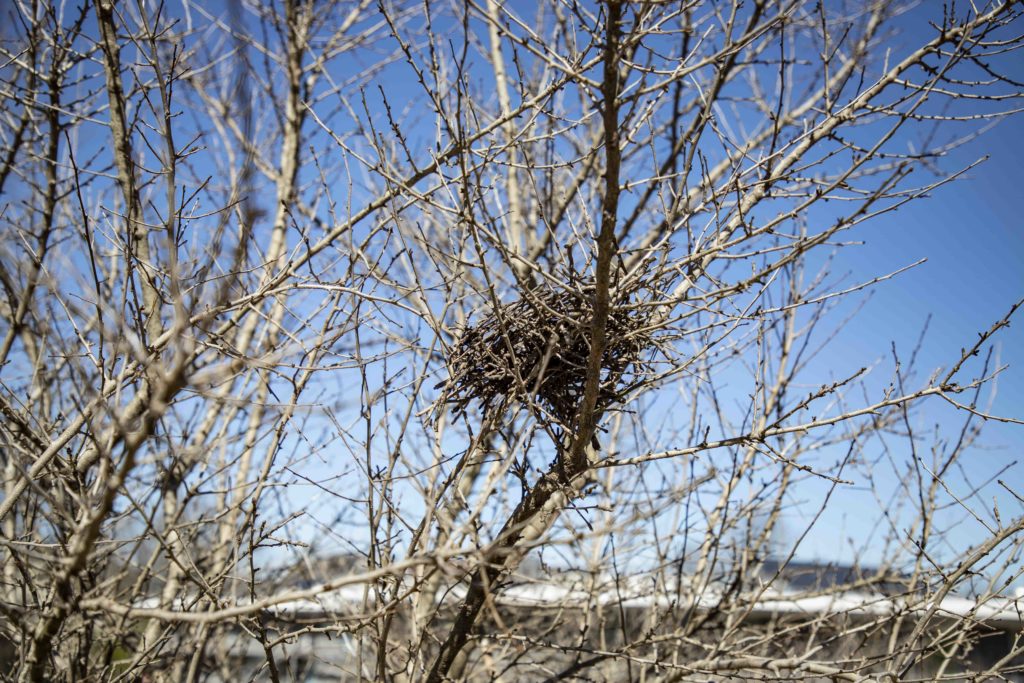
Plant native species. Perennials, shrubs, and trees native to the Ozarks, like this deciduous holly provide vertical layers of protection and shelter in all seasons.
Remove Hazards
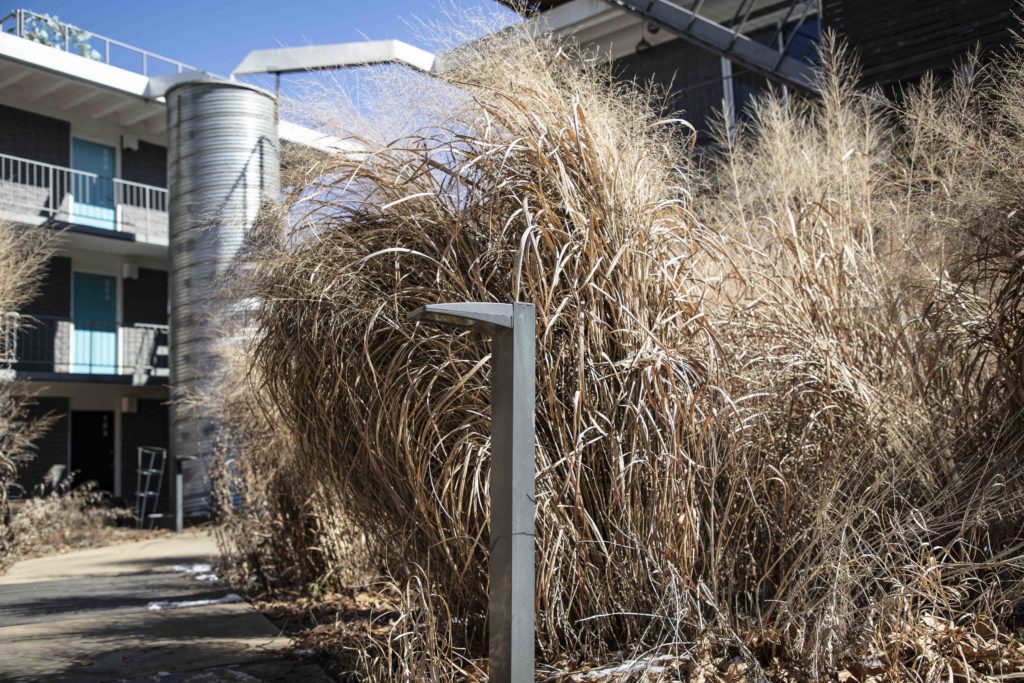
Decrease light pollution. Too much artificial light causes trouble for migrating birds. LED downlighting illuminates sidewalks while decreasing light pollution, helping reduce bird collisions.
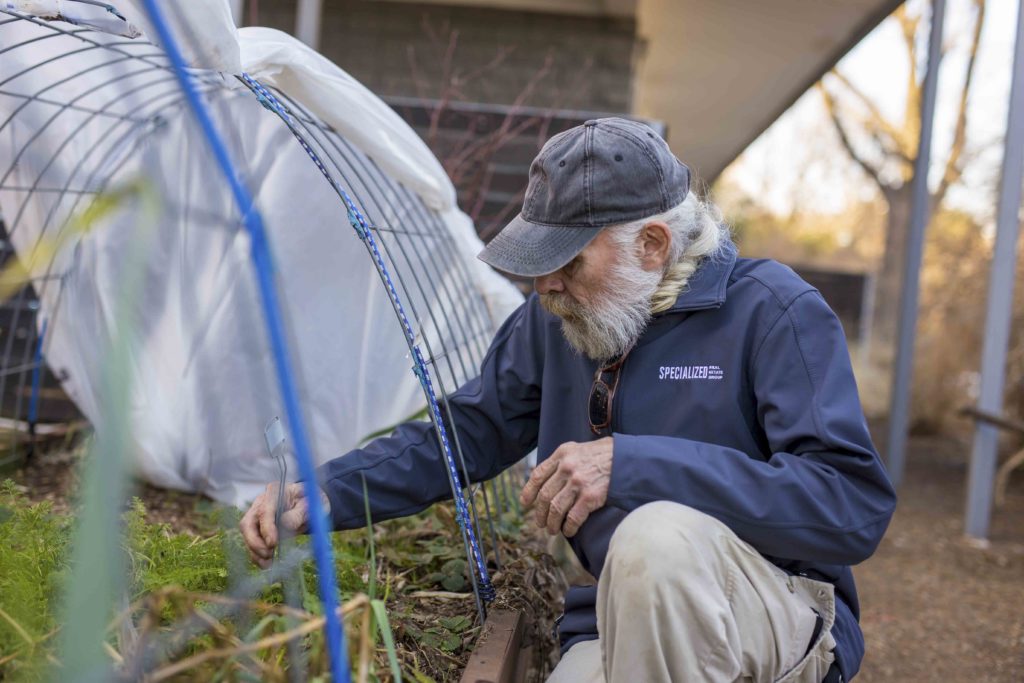
Eliminate poisons in the landscape. Pesticides kill more than pests. Birds can be poisoned when they eat insects and rodents that have ingested pesticides. Beneficial insects such as native bees can also become unintentional victims. At Eco, horticulturist Tim Copeland maintains gardens organically.
Supply Basic Needs
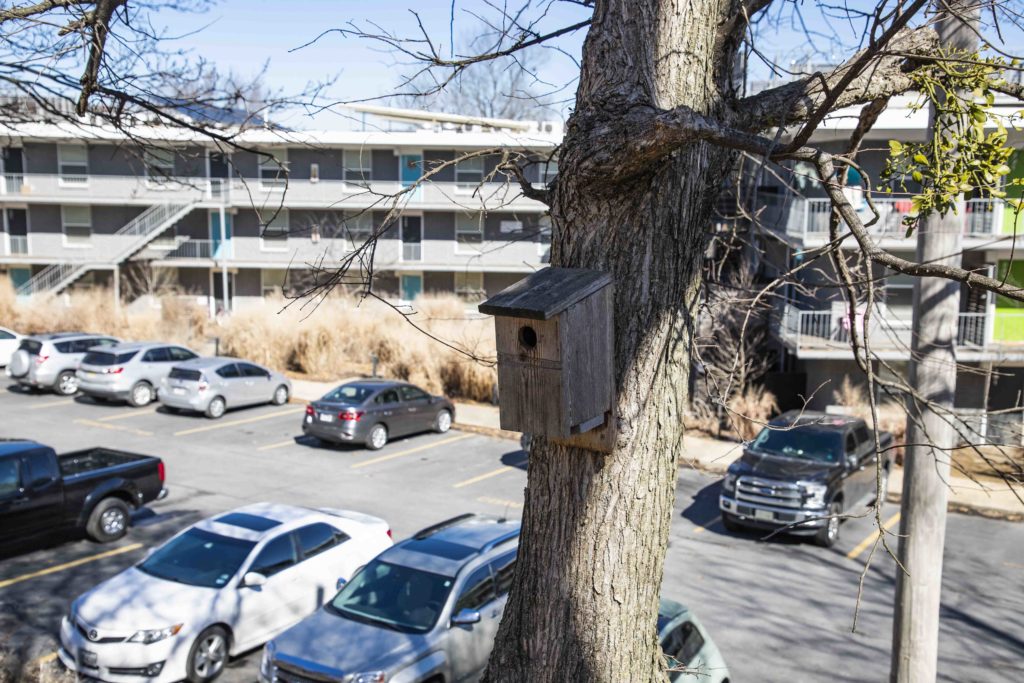
Provide bird houses. Bird houses like this one designed for bluebirds are provided throughout the property.
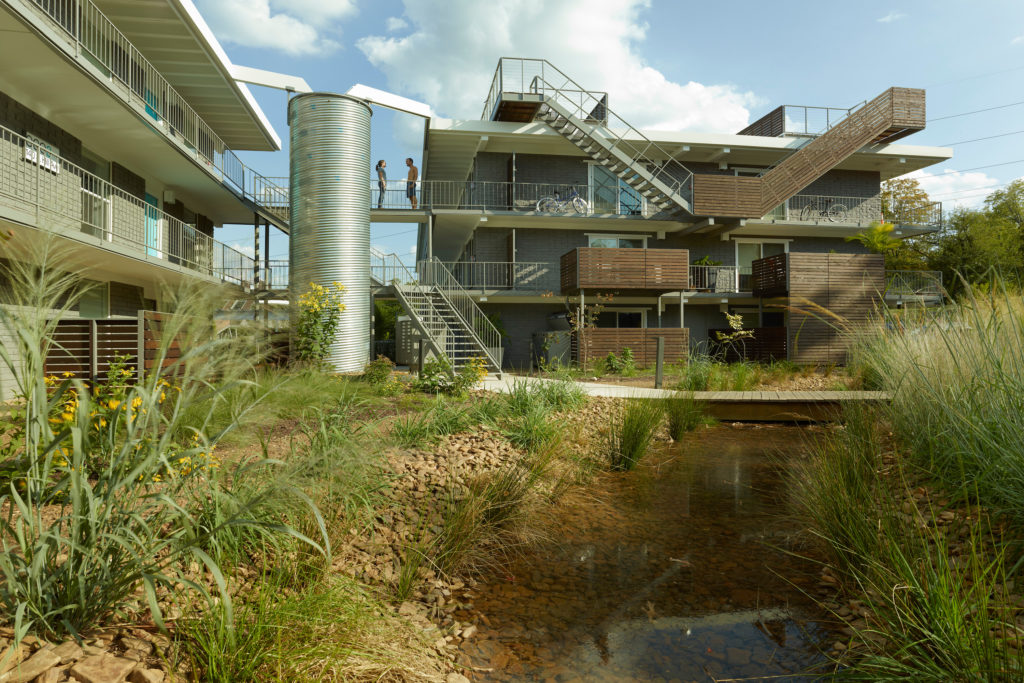
Create a water feature. At Eco, the rain garden is frequented by birds for drinking and bathing.
Personal Actions
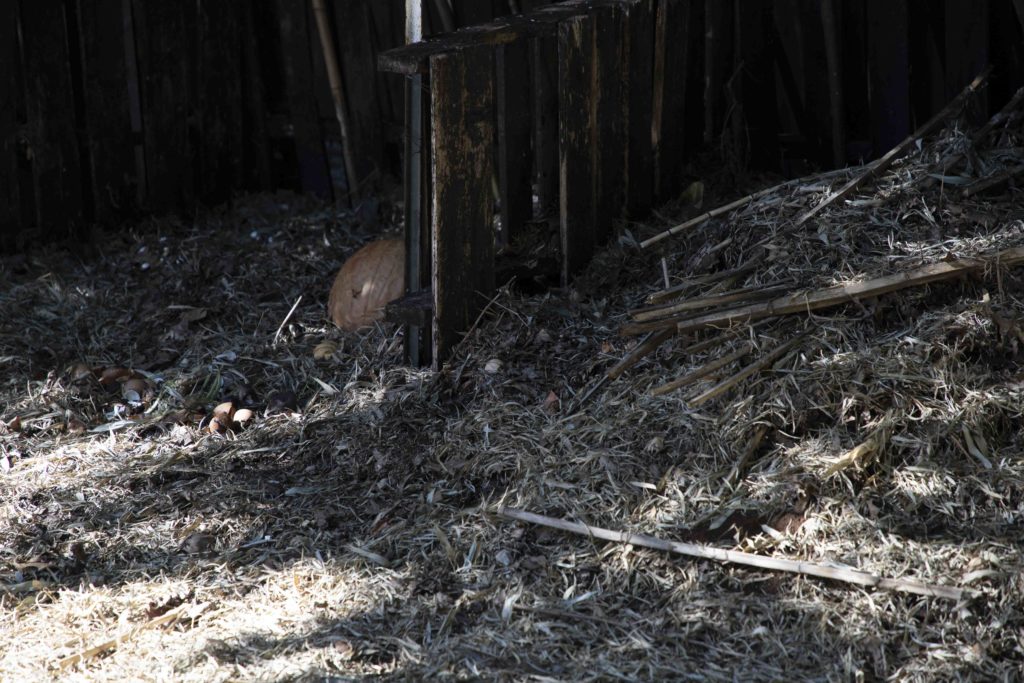
Compost food & yard waste. Grass trimmings and other yard waste join residents’ food waste in a compost bin.
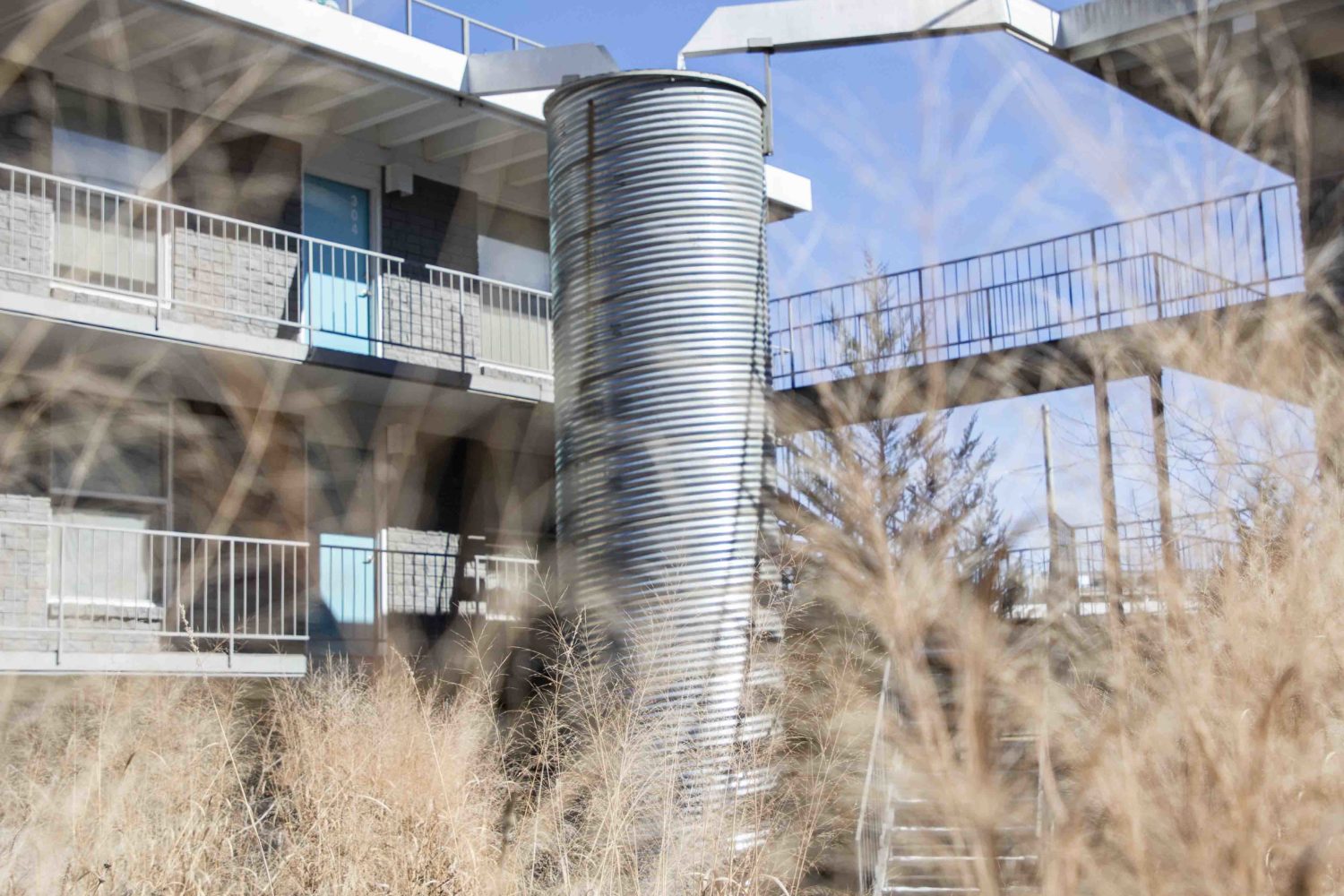
Install a water catchment system. Cisterns capture half of the rainfall from rooftops at Eco. In home landscapes, simple rain barrels will do the same job.
Arkansas Audubon Society
Visit Arkansas Audubon Society’s Bird Friendly Yard webpage to learn more or to apply for certification.

